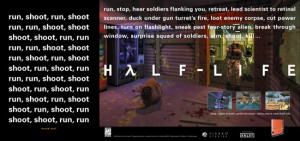If the reason for your game is to tell a story you have to tell, consider writing a novel. If the reason for your game is to depict a vision, consider making a film. If the reason for your game is to articulate a political point, consider a blog where you can define your terms.
None of these things preclude a game as a choice, and a great game may have all of them. But the operative aspect of a game is in mechanics which respond to user input. If you do not feel you are ready for that aspect, your great story will be mired in poor scenarios, your grand vision will be worn thin by repetitious experiences, and your political point will be nullified by the dominant strategy gamers naturally discover in playing.
You must first love gaming as an action, a venue, a notion, and a lens through which to view the world. If you love your story, vision, or point more, the game itself will suffer for it. The game will be streamlined to keep player choice inside of these non-game aspects.
Regardless of which suffers intrinsically, the player will have a lesser experience, and all will be undermined. Make solid mechanics and user input the cornerstone of your game, and build upon that cornerstone that which fits on it. This is part of the art form of gaming. It is not in impersonating other art forms, in impressing critics of other fields, or seeking legitimacy by being covered by non-gaming media venues.
Gaming is the highest art form, because it doesn’t tell us strictly about the times in which it was made, or the people who made it, or even how it makes us feel. It can tell us who we are, by allowing us to explore the scope of our moral agency in a controlled fashion. Gaming is the art form which is a moral expression of all who partake.
The ceiling has never been higher for art, let’s not hunch our backs to endear the leading art forms of previous times.



